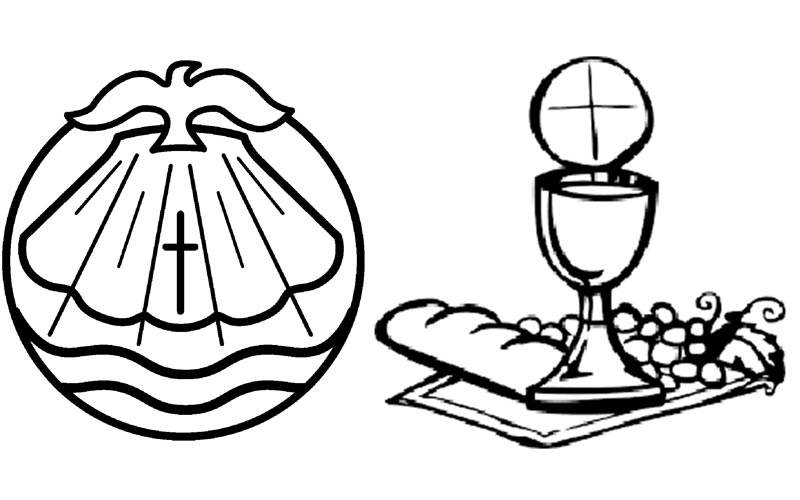As part of his second theological Exam to become a pastor of our church, Pastor Marlon Hiestermann has written a paper titled: “What are the purposes and functions of confirmation?
A practical-theological investigation with a specific focus on the link to Baptism and confirmation’s status in the present-day FELSISA.” If you want to learn more about confirmation and its role and purpose today, you might find some helpful answers here.
Pastor Marlon, why did you decide to write a paper on confirmation? Where does your interest in confirmation come from?
Thank you for reading this post, don't forget to subscribe!Confirmation plays a central role in the life of members of our Synod. However, confirmation was not instituted by Christ, nor are there any direct references in the Bible to what we today call ‘confirmation’. During my vicarage, I also learned that there are very different expectations and impressions of confirmation. Therefore, the question arose for me: What are the purposes and functions of confirmation?
At baptism, the parents and godparents confess the faith of the church for the child. At confirmation, the confirmands then confess their own faith. Can you describe the relationship between baptism and confirmation in a bit more detail?
In my paper, I was able to explore and demonstrate that the Confirmation developed out of the baptismal liturgy of the Old Church. What was originally part of the service of Baptism – the laying on of hands together with the assurance of the strengthening of the Holy Spirit – developed into an independent service or rite. The tension between confirmation and Baptism theologically implies that the confirmation refers to baptism but cannot add anything to the gracious effects of Baptism. Pastor Krause said it very nicely at the Pastors’ Convention in 1984: “Confirmation may not go beyond Baptism.” Accordingly, the FELSISA Constitution states: “The act of confirmation does not validate Baptism in any way. The saving grace of Baptism does not need to be validated by any human act.”
Why are we confirmed, if we have already been baptized?
The Constitution of the FELSISA gives a good answer to this: “The confession of the Creed is the central act during the rite of confirmation.” A Christian who has been baptized as an infant confesses their faith at confirmation. The confession expresses that this person has learned the important contents of the Christian faith. Thus, the confirmand themselves state that they believe in the same faith their parents and godparents confessed for them at their Baptism. We can support and practice confirmation, if we understand it fundamentally as a remembrance of Baptism, where a Christian confesses his faith in reference to his Baptism. There are many remembrances of Baptism in the life of a Christian – every moment of repentance is a return to baptism. Confirmation differs from other remembrances of Baptism only in the fact that confirmands are given a special public opportunity to give testimony of their faith.
What is the role of confirmation class in the years leading up to confirmation?
The lessons prepare confirmands for the conscious, independent confession of the Christian faith, which they will testify at confirmation. Thus, teaching itself is strongly connected with Baptism, because Jesus Christ has commanded His Church (Matt. 28:19-20 [ESV]): “Go therefore and make disciples of all nations, baptizing them in the name of the Father and of the Son and of the Holy Spirit, teaching them to observe all that I have commanded you.” The most important contents of the Christian faith are taught to the confirmands. This knowledge is verified during the examination (“Prüfung”). At confirmation, the confirmands confess the faith in which they are baptized.
What other aspects are important at confirmation?
The blessing, which is an assurance of strengthening in faith by the Holy Spirit, is, besides the confession of faith with the Creed, the second most important part of the confirmation service. To this, the Constitution of the FELSISA states: “With the blessing, the young Christians once again receive the personal assurance of the assistance of the Holy Spirit in their lives.” Another important aspect is the maturity in the Christian congregation: At confirmation, a person stands as an independent individual. As you grow up, you reach a point of maturity where you witness your own faith, and you thus gain personal responsibility in the church – this takes place at confirmation. Furthermore, the reception of the Lord’s Supper usually takes place at confirmation, as the confirmands have confessed (at the examination) that they believe that they receive the true body and blood of our Lord Jesus Christ in the Lord’s Supper.
Can you summarize in two or three sentences, why confirmation still is important today?
If you are confirmed, it means that you have personally testified the Christian faith on a specific day. Upon this confession, you were strengthened for your life in faith by God’s Word, both during the blessing with the laying on of hands as well as with the reception of your confirmation verse. The fact that you are confirmed means that you are recognized as a mature and responsible Christian. No longer are your parents to be asked what you believe. In the church and in the world, as a self-confessed Christian, you bear witness of your faith.
Pastor Marlon Hiestermann, serving as Vacancy Pastor in Uelzen.
(The questions were put to him by Pastor Dr Heinz Hiestermann, Greytown)


